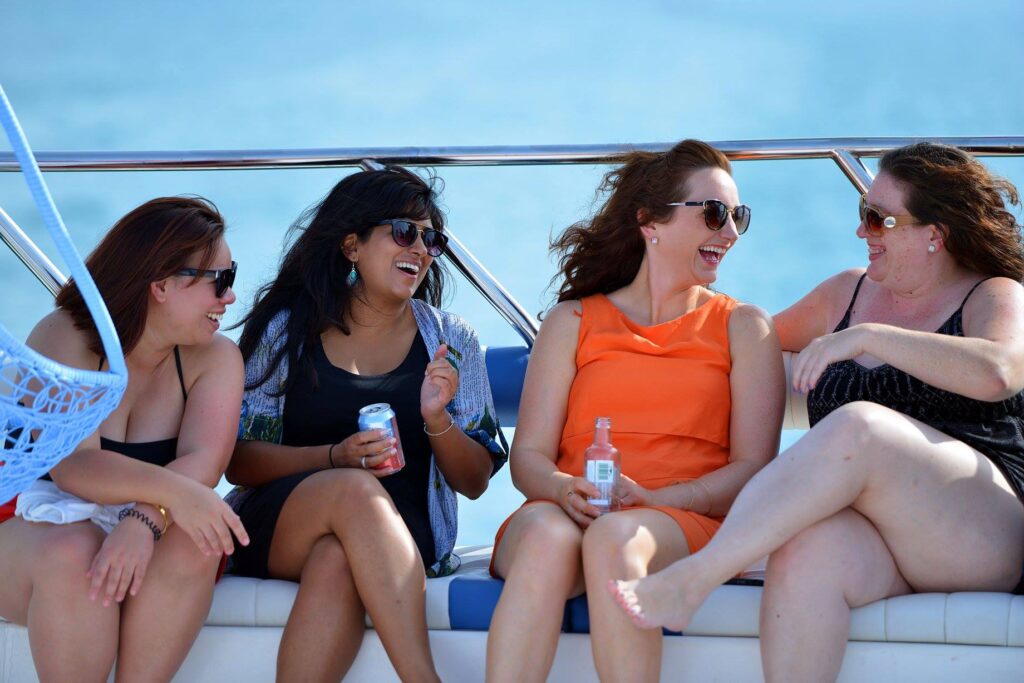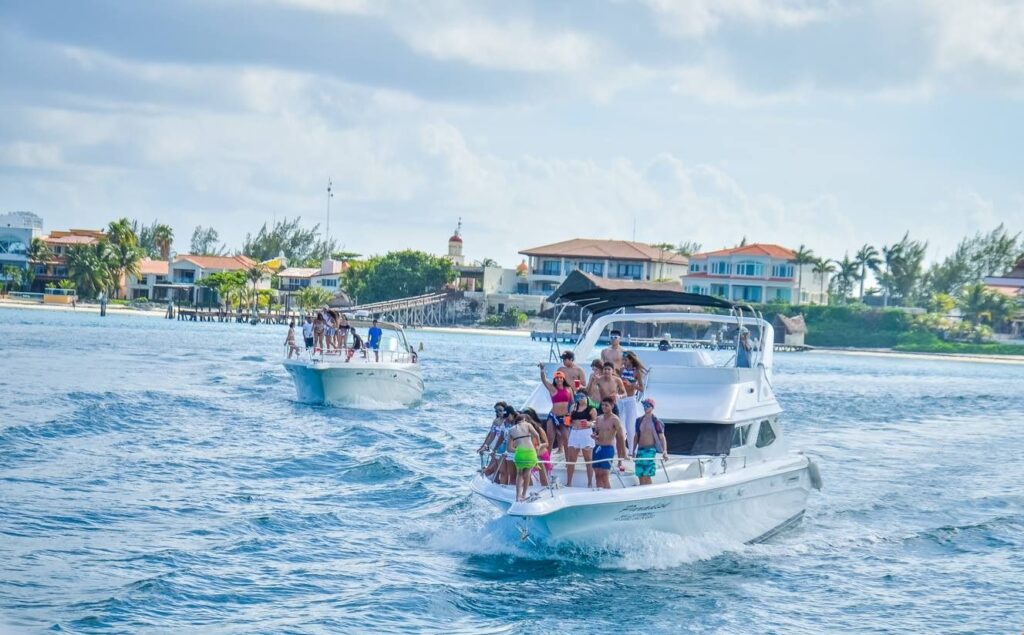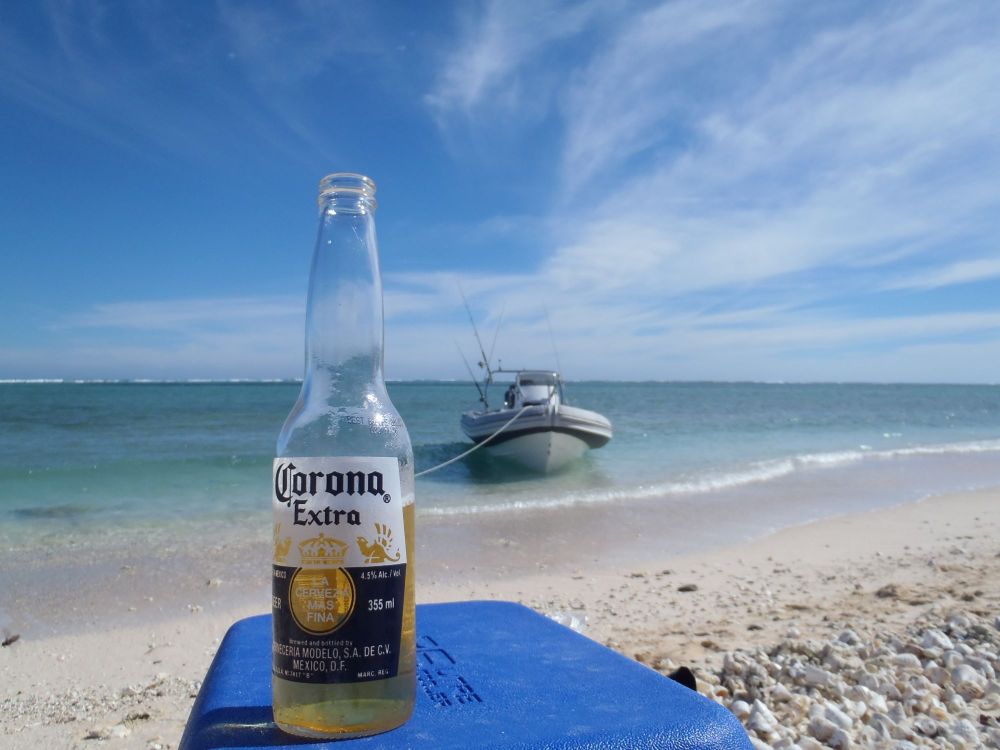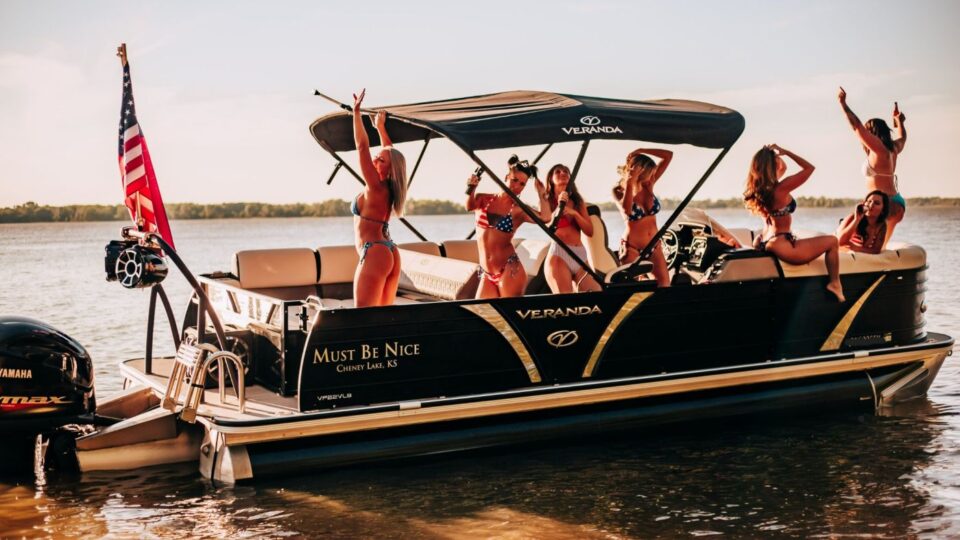Can You Drink Alcohol When Sailing or Boating?
You may already know the answer to this question but it is always better to understand the facts. Even if drinking alcohol while boating is not unlawful, boat operators should be aware of the regulations and the potential consequences of operating the vessel while inebriated. Keep in mind that boat operators should follow the same safety precautions that apply to alcohol drinking and operating a car. There is no such thing as a safe amount of alcohol to drink before operating a boat. Just as there is no such thing as a safe amount of alcohol to consume before operating a car on land. In general, drinking and boating are two activities that any responsible sailor has to avoid. So, let’s get now to the facts and see why you can’t drink alcohol while sailing. Follow me!
Why you Can’t Drink Alcohol while Sailing
There’s a reason why sailors and boaters have to abstain from mixing alcohol with sailing. Alcohol is involved in nearly 16% of boating accidents and fatalities. This should be enough of a reason to avoid consuming alcohol while sailing. We all know it’s not a good idea to drink and drive. However, when it comes to sailing, some individuals still don’t know whether or not it is permissible to drink alcohol while sailing. This is likely due to the fact that most people are not fully aware of drinking and sailing rules. Note that sailing laws differ from state to state but remain within the same parameters.
In reality, sailing while intoxicated is an unusual way of wasting a nice day on the water. And this applies even if sailing and boating, in general, is frequently a pleasurable sport that usually incorporates drinking and partying. In fact, it can result in injuries, lawsuits, jail time, and, in the worst-case scenario, death. While having or even drinking alcohol aboard a boat is lawful, operating any water vessel while inebriated or under the influence of alcohol or any other narcotic is prohibited. The concept here is that drinking alcohol can impair your judgment, coordination, balance, vision, and reaction time.
As a result, the blood alcohol limit is set at 0.08 percent, the same as when operating a car. Operating a boat while under the influence of alcohol is a federal violation that can result in fines of up to $5,000 and/or jail time in many states. Of course, this applies to any boat, whether it’s a sailboat, kayak, canoe, rowboat, or motorboat. Boating While Intoxicated (BUI) statutes differ from state to state, as do the penalties that come with them. Operating any form of watercraft while inebriated is, however, unlawful in every state in the United States.

>>Also Read: Sailboat vs Powerboat Safety
Guidelines for Sailing Safely
Alcohol has varied effects on different people, and being out on the water in the heat can add to the mix. Sailors should have plenty of water and non-alcoholic beverages with them when they go out on the water. Staying hydrated is crucial while in the sun for any length of time. But, staying hydrated while on the water is much more critical, especially when consuming alcohol. Remember that when being on a boat, you should wear a floatation device or life jacket. You should also plan your journey ahead of time. Consider how tiresome it can be to be out on the water and in the sun all day. And, also planning to return home before exhaustion sets in.
In general, a person of the legal drinking age can drink responsibly. However, they must limit themselves to one or two drinks over the course of a few hours. The National Institute on Alcohol Abuse and Alcoholism (NIAAA) defines a standard “drink” as one beer (12 ounces containing 5% alcohol). Or, one glass of wine (5 ounces containing 12% alcohol), or one shot of distilled spirits (1.5 ounces of 80 proof liquor containing 40 percent alcohol). When sticking to low-risk drinking patterns, such as less than three drinks per day for a woman and less than four drinks per day for a man, an adult may be able to drink responsibly.
If a person consumes more than two drinks in an hour or two, their blood alcohol content levels (BAC) will typically rise to dangerous levels. A person’s metabolism, size, gender, race, what they’ve eaten that day, stress levels, and other biological, genetic, and environmental factors all have an impact on BAC levels. When planning to run a boat, however, it is preferable to avoid drinking entirely. And, also to give plenty of time between drinking and operating the vessel (at least one hour per drink). Before embarking on a boat adventure, it is a good idea to designate a non-drinking driver. Lastly, in order to protect everyone’s safety while out on the water, everyone on the boat should agree to drink responsibly.

>>Also Read: Is It Safe to Sail in a Thunderstorm?
Risks of Drinking Alcohol
According to the American Boating Association, alcohol is responsible for over half of all boating accidents and 16 percent of all boating deaths. Boaters and sailors with a blood alcohol level of 0.10 percent or above are 10 times more likely to involve in a severe sailing accident than sober boaters, according to the Coast Guard.
Alcohol is a depressant of the central nervous system, according to science. This means that it will reduce your mental and physical capabilities. It can also slow down your reactions and reflexes while interfering with your decision-making ability. You’ll become drowsy as well as lethargic. Not only that, but it will interfere with your regular balance and hearing capacity. All of these characteristics can raise your risk of drowning or making a poor decision in the event of a sailing accident.
The effects of alcohol on your brain and body, whether it’s emotional, physical, or cognitive damage, can be deadly, especially on the water. When you’re sailing while inebriated, you’re more likely to make risky decisions, fall off the boat, and possibly drown. It raises the chances of harming yourself as well as others on board. In addition, others in the area may also be put at risk, not to mention causing damage to your boat.
When you’re out on the water, keep in mind that the sun and water might make alcohol have an even stronger effect. In other words, while you’re on a boat, alcohol may have a greater impact on you than when you’re on land.
Operating a sailboat while you are drunk is certainly riskier than driving a car. When sailing, it’s critical to be mindful of currents, tides, wind, and any unseen objects that may be present underwater. Other boaters, people, items on the water, and the weather should all be considered. As a result, your judgment, coordination, eyesight, balance, and response time must always be at their best. Unfortunately, when you’re drunk, these critical traits will alter, thus putting you in a dangerous predicament.
Alcohol and Sailing: A Combination to be Avoided
It goes without saying that combining alcohol and sailing can be fatal. Sailing while inebriated could have terrible repercussions. If you decide to sail while inebriated, you may pose a major risk to yourself and others. Bear in mind that law enforcement authorities will administer a test to determine your blood alcohol level. This happens in order to determine whether or not you are in a drunk state. Even if your blood alcohol level is less than 0.08 percent, seeming to be intoxicated as well as the presence of alcohol may result in penalties and fines. If you fail the tests, your voyage will end unpleasantly. Also, a non-drinking member of the boat will have to sail back to the land. Moreover, the authorities can even impound your boat.
Bringing or drinking alcohol aboard your boat is, of course, legal. It is, however, unlawful to operate the vessel if your blood alcohol level exceeds the 0.08 percent legal limit. The person in command of the boat is usually the one affected by this law. After all, the laws governing alcohol and sailing aren’t quite as difficult as many people believe. They’re somehow similar to the ones concerning drinking and driving.
Similarly, any drug use is subject to the same rule. It’s also worth noting that the passengers may be unrestricted as long as they stay away from the rudder. Overall, whether you’re in charge of the boat or just a passenger, it’s always a good idea to drink responsibly on the water.
While the penalties for boating while intoxicated vary by state, the most common fines include a $1,000 fine or even a $5,000 criminal charge. In addition, authorities may even seize and auction your boat. The worst-case scenario is to end up in jail! The authorities can also suspend your sailing license or permission. Moreover, your driver’s license may be also affected in several states. As you may understand the consequences of drinking alcohol while sailing are devastating for both yourself and your sailboat. In summary, the alcohol and sailing laws are in place to protect everyone on board, thus it is critical that we all follow them.

>>Also Read: Are Sailboats Safe?
Safety Comes First
As a responsible sailor, you have to ensure that you and your passengers adhere to the legal drinking and sailing requirements. In other words, you must make sure everyone on the boat understands the rules. In addition, everyone has to drink safely and behave appropriately before opening any liquor or beer. This is critical in ensuring that everyone on the boat remains safe. More importantly, you should remain sober at all times. You should abstain from consuming alcoholic beverages, and make sure that everyone arrives at the destination safely. It’s important to remember that drinking while sailing never go together. Keep in mind that the regulations regarding drinking while sailing differ from state to state. But, the bottom line is that you should not consume alcohol or any other narcotic in case you’re the captain of the boat.
However, bear in mind that it is legal to drink alcohol while sailing. This applies as long as your blood alcohol concentration does not exceed the legal limit. As a result, it’s critical to be aware of your local rules as well as the potential consequences of operating a boat while inebriated. The best thing to do is to follow the same rules that apply while driving a car while inebriated. Some people may be able to sail while drinking tiny amounts of alcohol. But, there is no such thing as a safe amount of alcohol to drink while sailing. As a result, the best thing to do when sailing is to avoid consuming alcohol.
To be honest, alcohol has a varied effect on each of us. But, sailing while drinking is never a good idea. If you’re sailing while inebriated, things might grow a lot more complicated, therefore you should avoid consuming alcohol while sailing.
Can You Drink Alcohol When Sailing or Boating? – The Bottom Line
As you may understand, alcohol and sailing don’t go together. Yes, drinking and partying while onboard can be fun. But, you should do that while being moored or safely anchored and leave at least 1 day after for rest. If you need to drink while sailing, select an alternate path and drink plenty of water as well as food. When you’re out on the water, it’s far preferable to drink lots of water and non-alcoholic beverages. More essential, make sure you’re wearing a life jacket or other floatation equipment at most crucial times. However, if you are of legal drinking age and must drink while sailing, it is critical that you do it with precaution. You can have a “normal drink” and still sail, according to the National Institute on Alcohol Abuse and Alcoholism. One beer, a glass of wine, or a shot of distilled whiskey or spirit will suffice.
Note that within an hour or two, you shouldn’t drink more than a can of beer. Or, a glass of wine, or a shot of an alcoholic spirit. However, if you’re going to operate a boat, it’s much better if you don’t drink alcohol. Again, it’s critical that passengers drink responsibly in order for everyone to stay safe. According to reports, drunk boat passengers are more likely to be involved in risky situations. These can be falling overboard, capsizing the boats, or even drowning.
Keeping all that in mind and you will be completely safe while sailing. Lastly, don’t believe that fun onboard depends solely on alcohol consumption. Sailing is fun and adventurous by itself but I understand that partying and drinking is a human necessity sometimes. So, if you choose to do that always follow the safety guidelines and leave an appropriate amount of time in order to rest before setting sail. Wish you all safe & pleasant voyages!
